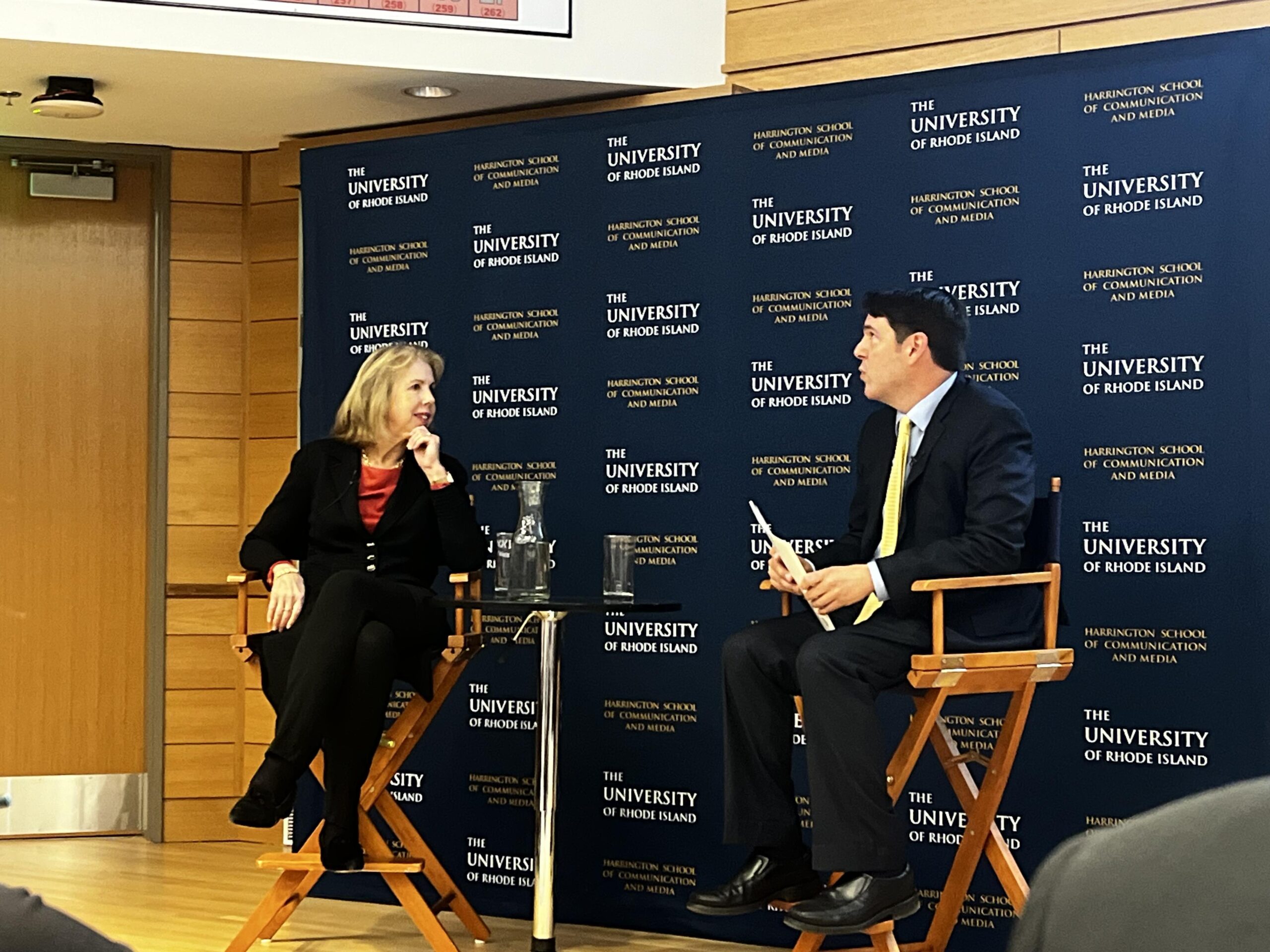In a world polarized by social media, former TIME magazine editor-in-chief Nancy Gibbs discussed the role of journalists as “truth seekers” at the University of Rhode Island on Thursday, Oct 10.
Gibbs warned the audience about the growing distrust in news and how it impacts media creators and consumers in her presentation at the 16th annual Christiane Amanpour Lecture, titled “Our Information Emergency.”
“I think it is unreasonable and unfair to ask the fourth estate to ask the press to save democracy,” Gibbs said.
Instead of telling people how to vote, journalism is responsible for informing the voters, according to Gibbs. She stated that only the voters can save democracy.
Keeping people informed with the mass distrust in the media and the rise of social media is harder than ever today, but Gibbs said that journalists have to find out what is true and leave it to readers to make their own decisions.
“If we don’t trust [readers], maybe we should not expect them to be trusting us,” Gibbs said.
81% of people think that democracy is being threatened and 39% have no trust in mass media, according to Gibbs.
Many people also think that the corruption of politics and the media go hand-in-hand, according to Gibbs. She said that there is a widespread perception, notably amongst young people, that powerful people use the media to advance their political interests.
Gibbs said, however, that throughout 30 years working in the newsroom, she was never told to assume a certain position, nor to approach some of the most pressing political issues from a certain angle.
“Now when you ask people about the state of our politics, they use words like divisive, corrupt [and] messy,” Gibbs said.
Due to these beliefs, people experience what Gibbs referred to as “news fatigue.” This means that viewers limit how much news they consume because of how it affects their mental state.
59% of people say they limit how much news they intake, most notably political news, according to Gibbs.
Many people have chosen to favor certainty over curiosity because of the influence of social media and its algorithms, according to Gibbs. Rather than exploring other sides of the political system, many choose to remain certain in what they know based on the information they are being fed through their news cycles.
Despite the mass distrust in the media, people are comfortable with their primary news sources, according to Gibbs. It is other people’s primary news sources that they don’t trust. 80% of adults say Americans get different facts depending on where they turn to for news.
“We see one another as though it’s in a funhouse mirror,” Gibbs said.
Social media primes people to think the worst of each other across the political spectrum, according to Gibbs. Despite this, 48% of people worry that the personalized news they receive through their algorithms may make them miss out on important news stories or are not having their views challenged enough.
Jaime Lagura, a third-year student majoring in communications and public relations, asked Gibbs how they could eliminate seeing fake or biased news in their media consumption.
“Think of yourselves as intelligence officers where you need to widen the lens,” Gibbs said.
Gibbs challenged the audience to read and listen to things that they normally wouldn’t indulge in to see how the world looks through a different perspective. This makes the animosity that is dividing the country right now less scary, according to Gibbs.
Gibbs also took time to address the aspiring journalists in the audience.
“Journalism is a form of lifelong learning,” said Gibbs.
Gibbs hopes that these students will bring new energy, curiosity and sensibility into the profession and not fall into the “pandemic of certainty.” While journalists should be certain about the facts they are reporting, they should not be afraid of asking questions that might challenge the views or ideas they have going into an interview, according to Gibbs. Where social media polarizes people, journalists should aspire to seek the truth.
Nancy Gibbs was the managing editor of TIME magazine where she was the first woman to hold that position. Gibbs is the author of more cover stories than any writer in TIME’s history. She has also published two best-selling presidential histories.
The annual Amanpour lecture is named after URI alumna Christiane Amanpour. Amanpour is the chief international anchor for CNN and a journalist who has been honored with numerous awards for her work. The lecture series began in 2008 and has welcomed a respected journalist to URI each year since, according to the Harrington School of Communication.
To view the complete lecture, visit the Harrington School’s Youtube channel .





